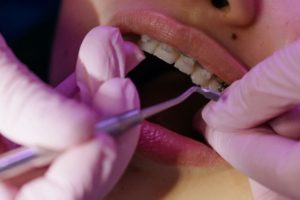Oral surgery is known to cause bleeding, but it’s also common to feel discomfort or pain when the anesthesia wears off. Here are a few tips from our clinic to help you deal with post-op symptoms.
How to minimize bleeding
Bleeding is expected following a dental extraction, which is why your dentist will place a gauze pad on the wound. It’s important to keep it in place for at least 1 hour. Exerting a bit of pressure on the wound also helps the blood coagulate.
Take time to rest and especially avoid smoking, drinking alcoholic or hot beverages. While it is important to maintain your oral hygiene, it is recommended to avoid brushing or stroking the affected area.
How to reduce swelling
Following oral surgery, swelling is also very common. In this situation, it is recommended to apply a cold compress (ice, frozen bag of peas, etc.) near the affected area. After 24 hours, if the swelling has not decreased, it is advised to use warm or lukewarm compresses to promote blood flow. Please note that swelling can last for up to 7 to 10 days and may also leave bruises.
How to relieve pain
Once the effects of the anesthesia wear off, you may feel pain after having dental surgery. It may last for up to 5 days and it is recommended to avoid intense physical activity during this time. Anti-inflammatory drugs or NSAIDs are a good option to help the pain subside. If you feel pain at the jaw, gently massaging the area a few times a day can help tremendously, as well as eating foods that don’t require much chewing to give your mastication muscles a break.
If these tips do not help with your post-op symptoms, please contact your dentist. Dr. Thu Nguyen and her team are at your disposal to answer all of your concerns.
Schedule an appointment
[contact-form-7 id= »18559″ title= »Appointment form »]





